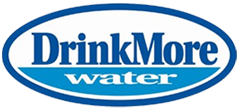Water is essential to the human body, and drinking pure, clean water is an important part of maintaining your health. As the popularity of bottled water has increased, so have claims about the benefits of its contents, from specialty waters with added vitamins to mineral-rich waters from natural springs.
One of the most recent trends in the bottled water industry is the marketing of alkaline water, which is claimed to have many health benefits and disease-fighting properties above and beyond your typical bottled water. Consumers can even purchase over-priced machines that produce alkaline water at home—so, what is the deal with alkaline water?
What Is Alkaline Water?
Simply put, alkaline water is water that has a pH of more than 7. The pH scale ranges from 1 to 14, with 7 being considered neutral, anything less than 7 being acidic, and anything more than 7 being alkaline. Vinegar, lemon juice, and the digestive fluids in the human stomach are all considered acids. Baking soda, lye, and antacids are common alkaline substances. When an acid and alkaline substance of similar strength are mixed, they will neutralize each other, resulting in a pH of about 7.
Is Alkaline Water Worth the Cost?
While there are many claims that creating an alkaline environment within your body can fight diseases that thrive in an acidic environment, the scientific evidence for such claims is decidedly lacking. For alkaline water to have an effect on your body, it must maintain its alkalinity throughout the digestion process.
But there are very important reasons that your stomach contains stomach acid in the first place—the most important of which is to help break down the food you eat thus aiding in the digestion process. The digestive fluids in the human stomach are extremely acidic (with a pH of around 2) and therefore, it would take an extraordinary amount of mildly alkaline water not only to neutralize the stomach acids, but also to maintain alkalinity after passing through the stomach. Alkaline water is immediately neutralized the moment it hits your stomach. In reality, common antacids would actually have a far greater effect on stomach acidity, with a single serving having more acid neutralizing power than a gallon of alkaline water, and they would be far easier to consume.
Additionally, the human body is very effective at regulating its own pH to maintain a healthy environment for all necessary cell functions. It does this through the endocrine system, the kidneys, and other regulatory systems, keeping a steady blood pH of 7.35 to 7.45. This allows us to drink water from a variety of sources in the wild without worrying about pH levels.
Far more problematic for the human body are contaminants like chlorine, heavy metals, viruses, bacteria, parasites, and chemicals. Unlike alkaline water, the body cannot simply neutralize such contaminants with stomach acids. It would be far more prudent—not to mention more cost-effective— to invest in water that is as pure and clean as possible, rather than alkaline water with its dubious benefits that are likely counteracted by the human body itself.
What Should You Look for in Quality Drinking Water?
It’s very simple: quality drinking water should have as few impurities as possible. At DrinkMore Water, our 12-step purification process eliminates over 99.5 percent of impurities, leaving clean, great-tasting water that is free of virtually all chlorine residues, microorganisms, nitrates, pesticides, herbicides, heavy metals, volatile organic compounds, and other contaminants.
Our water has a pH of about 6.8, which is well within the body’s ability to regulate itself. Typical alkaline water has a pH of 9, which is easily neutralized by the digestive system. In our opinion, the health benefits of eliminating impurities far outweigh any benefits that alkaline water could provide.
Contact DrinkMore Water today at 301-417-9333 to learn more about the benefits of our 12-step water purification process, or for bottled water delivery in MD, VA, or DC!

